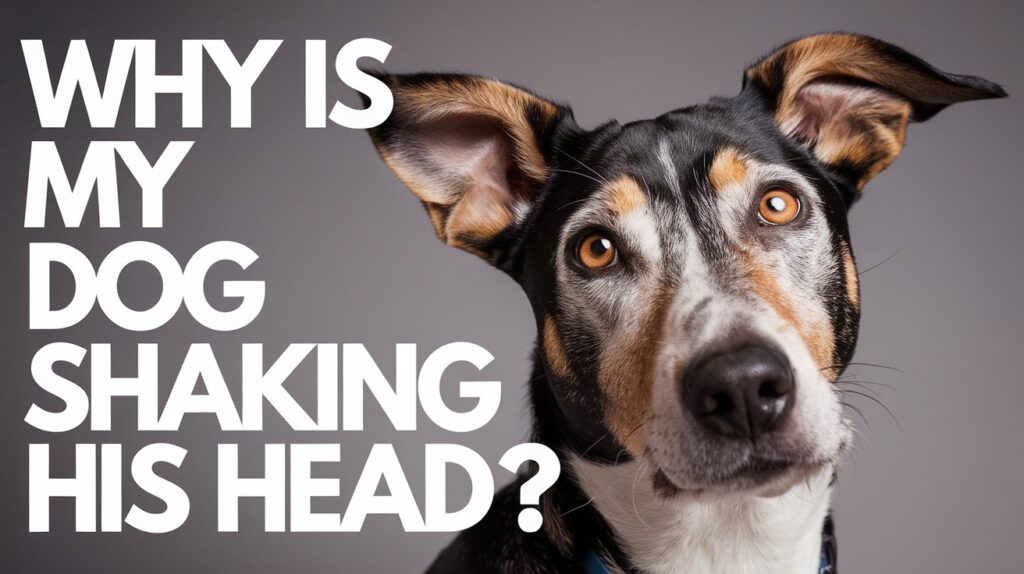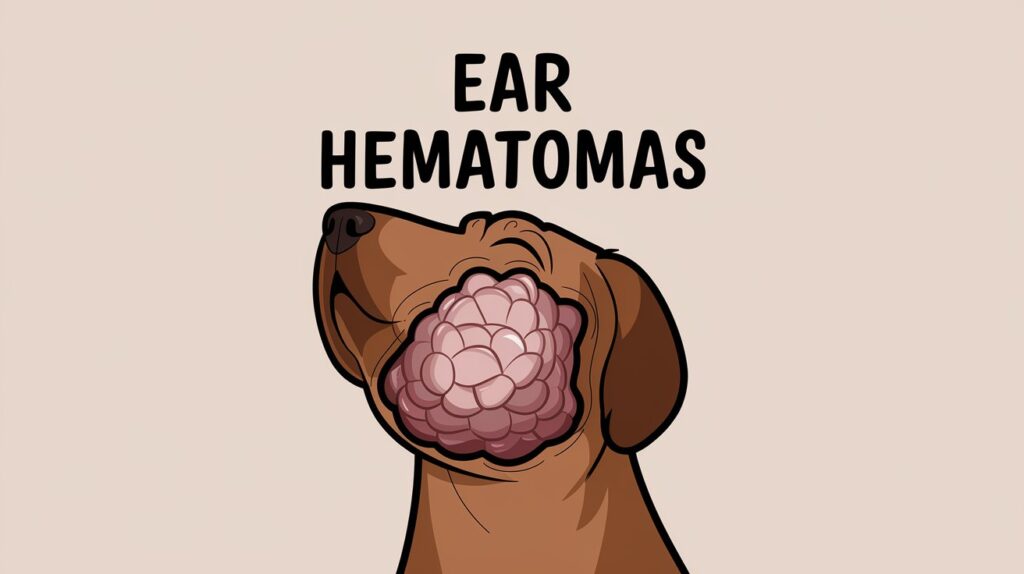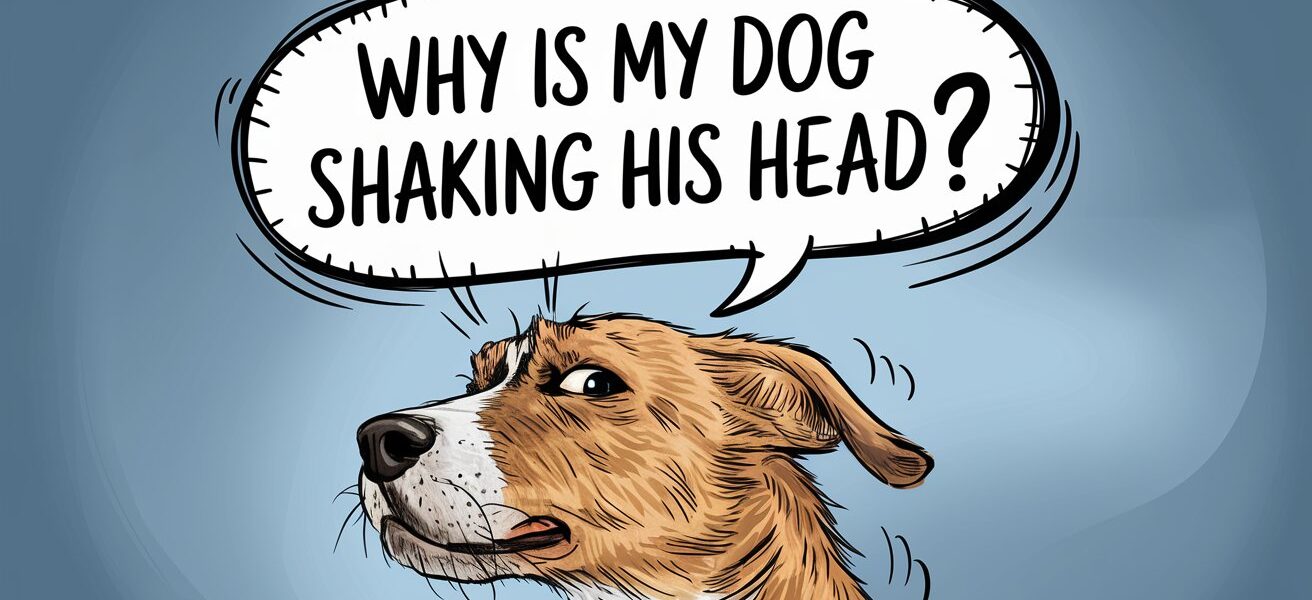Why Is My Dog Shaking His Head? Powerful Tips to Help Stop Your Dog’s Head Shaking

Why Is My Dog Shaking His Head?
Your dog might be shaking his head for several reasons, including ear infections, ear mites, or foreign objects like grass or dirt lodged in the ear canal. Other causes could be allergies, water trapped in the ears after swimming or bathing, or even an ear hematoma, a blood-filled swelling. In rare cases, neurological issues or trauma could also be the cause. If your dog is shaking his head frequently, it’s essential to have a veterinarian check their ears to identify and treat the underlying problem.
Common Causes of Head Shaking in Dogs
1. Ear Infections
One of the primary reasons dogs shake their heads is due to ear infections. Dogs are prone to these infections because of the shape of their ear canals, which can trap moisture, dirt, and debris. Ear infections can cause irritation, swelling, and discomfort, leading your dog to shake his head frequently.
Common signs of an ear infection include:
- Excessive scratching of the ear
- Redness or swelling in the ear
- Discharge or foul odor coming from the ear
- Sensitivity or pain when touching the ear
If your dog exhibits these symptoms, it’s crucial to consult a veterinarian. Ear infections can be caused by bacteria, yeast, or even parasites like mites, and each requires specific treatment.
2. Ear Mites
Another cause of head shaking in dogs can be ear mites. These tiny parasites feed on the wax and oils in your dog’s ear canal, causing extreme itching and discomfort. Dogs with ear mites will often shake their heads and scratch their ears excessively to alleviate the irritation.
Ear mites are highly contagious and can spread quickly between pets. If your dog has ear mites, you may notice dark, coffee-ground-like debris in their ears, along with frequent head shaking. A veterinarian can prescribe medications to eliminate the mites and soothe your dog’s discomfort.
3. Foreign Objects in the Ear
Dogs love to explore, and sometimes, their curiosity leads to foreign objects getting lodged in their ears. Whether it’s grass seeds, small twigs, or dirt, these foreign bodies can irritate and lead to head shaking as your dog tries to dislodge the object.
If you suspect something is stuck in your dog’s ear, it’s essential to avoid attempting to remove it yourself, as this could push the object further into the ear canal. A veterinarian can safely extract the foreign material and check for any damage to the ear.
4. Water in the Ears
If your dog has recently been swimming or bathed, water might have entered their ear canals. Water in the ears can lead to irritation and, if left untreated, may even result in an ear infection. To prevent this, always dry your dog’s ears thoroughly after water exposure, especially if they have long, floppy ears.
Dogs with water in their ears may exhibit:
- Frequent head shaking after swimming or baths
- Excessive ear scratching
- A sense of unease or discomfort
5. Allergies
Just like humans, dogs can suffer from allergies, which can lead to head shaking. Allergic reactions can cause inflammation in the ear canals, making your dog uncomfortable. Common allergens include pollen, dust, certain foods, and even flea bites.
Allergic reactions may present with:
- Itchy skin
- Red or watery eyes
- Frequent sneezing
- Ear irritation and head shaking
They may recommend allergy testing or prescribe medication to manage the symptoms.
6. Trauma or Injury
A trauma or injury to your dog’s head or ears could result in head shaking. This could be from a physical blow, a rough play session, or even a car accident. If your dog has recently experienced trauma, it’s essential to monitor them closely for any signs of head shaking, ear sensitivity, or unusual behavior.
Head shaking in these cases may be an attempt to alleviate discomfort or disorientation caused by the injury. Veterinary attention is vital in such instances to prevent further complications.

7. Ear Hematomas
An ear hematoma is a swelling caused by the rupture of blood vessels in your dog’s ear flap. This condition often results from excessive head shaking or scratching due to underlying issues like infections or allergies. Hematomas can cause your dog to shake their head even more, leading to further discomfort.
You may notice:
- A swollen, puffy ear flap
- Pain or sensitivity when touching the ear
- Continuous head shaking
A veterinarian may need to drain the hematoma or perform surgery to prevent long-term damage.
8. Neurological Issues
In rare cases, persistent head shaking could be a sign of neurological issues. Conditions affecting the brain or nerves, such as vestibular disease, can cause your dog to experience balance problems, leading to head shaking and tilting.
Signs of neurological disorders may include:
- Loss of coordination
- Disorientation
- Head tilting along with shaking
- Unsteady walking or circling
Neurological conditions require immediate veterinary intervention to prevent further deterioration of your dog’s health.
What to Do If Your Dog Is Shaking Their Head
If your dog is shaking their head frequently, it’s essential to determine the underlying cause. Here’s a step-by-step guide on how to handle the situation:
Check for visible signs:
Inspect your dog’s ears for redness, swelling, discharge, or foreign objects. If the ear appears normal, consider other potential causes like allergies or trauma.
Avoid home remedies:
While it might be tempting to treat your dog’s head shaking with over-the-counter medications, it’s best to consult a veterinarian before using any treatments.
Consult your vet:
A veterinarian can perform a thorough examination, including taking samples from the ear canal to diagnose the cause of the head shaking. Treatment may include antibiotics, anti-inflammatory medications, or specialized ear cleaners.
Preventative care:
Regular ear cleaning, keeping your dog’s ears dry after swimming, and monitoring for signs of allergies can help prevent future episodes of head shaking.
When to Seek Emergency Care
While occasional head shaking is normal, constant or vigorous head shaking could indicate a more severe issue that requires urgent attention. If your dog’s head shaking is accompanied by any of the following, seek veterinary care immediately:
- Bleeding from the ears
- Extreme pain or sensitivity in the head or ears
- Seizures or sudden loss of coordination
- Signs of distress or disorientation
Conclusion: Why Is My Dog Shaking His Head
Head shaking in dogs can result from various issues, ranging from mild irritations to severe medical conditions. Understanding the possible causes can help you take the appropriate steps to ensure your dog stays happy and healthy. Always monitor your dog’s behavior and consult a veterinarian if you’re unsure about their symptoms.
FAQs: Why Is My Dog Shaking His Head
-
What should I do if my dog keeps shaking his head?
Check for any visible signs of irritation, redness, or discharge in the ears, and consult a veterinarian to diagnose the issue. - Why does my dog shake his head like something is in his ear?
This behavior could be due to an ear infection, mites, foreign objects, or trapped water causing discomfort. - Why won’t my dog stop itching his ear and shaking his head?
It could be a sign of an ear infection, allergies, or ear mites, all of which require veterinary attention. -
Why does my dog’s head vibrate when I pet him?
Head vibrations during petting might indicate muscle twitching or sensitivity, often due to excitement or irritation in the ear.

Jahanzaib Kaleem is a passionate and knowledgeable pet writer and veterinarian dedicated to enhancing the well-being of pets and educating pet owners around the world. With years of experience in veterinary medicine and a deep love for animals, Jahanzaib combines his medical expertise with a flair for writing to deliver insightful and practical advice on pet care.





